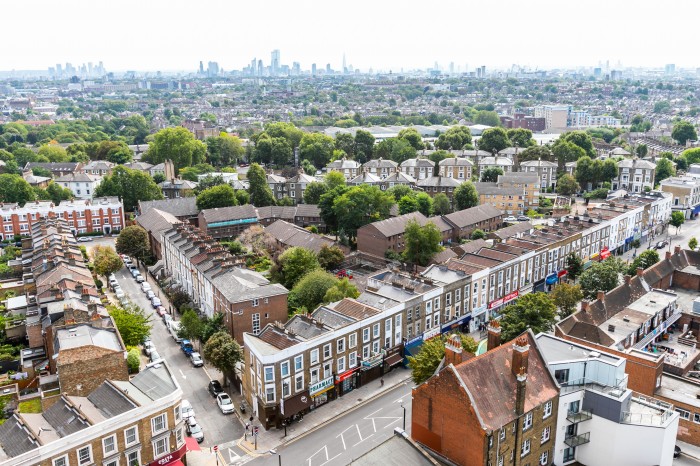New cladding guidance helps 500k leaseholders
Posted in March 2021
The government estimates that nearly 500,000 leasholders will benefit from new RICS guidance on the requirement for EWS1 safety certificates.
New guidance specifically aimed at reducing the high number of EWS1 safety certificates being requested by building societies and banks on blocks of flats, has been seen as a step in the right direction.
The guidance issued this month by the Royal Institute of Chartered Surveyors (RICS), is expected to save time for lenders when these inspections are not actually required. Most lenders are expected to follow this advice. This will also result in almost 500,000 leaseholders in smaller blocks with little cladding, no longer needing to obtain an EWS1 form. Which in turn should enable homeowners to sell or re-mortgage more easily and much quicker.
In the wake of the disastrous fire at Grenfell that tragically saw 72 people lose their lives, the government has tightened the fire safety advice for flats. When lenders started to require proof that buildings met the new guidelines, sales started to fall. This was partly due to the bank valuations not being able to perform the required detailed checks and ultimately refusing to say what the flats were worth.
In December 2019, the RICS and Building Societies Association and the UK Finance bodies created the EWS1 form to try and resolve this blockage. It standardises fire-safety checks for buildings taller than 18 metres (six-storeys) and is valid across all flats in a block for 5 years. For the form to be signed off, an expert must check that the wall structures, balconies, insulation and cladding all comply. This requires holes to be cut to look inside walls and for material samples to be tested in a laboratory. In the event that flammable materials are discovered, they can stay only if the exact combination passes a test whereby a three-storey model wall is set on fire.
But since mortgage lenders started requesting fire surveys from a much wider range of sellers, hundreds of thousands of leaseholders have since been asked for EWS1 external wall safety forms when they sell or re-mortgage, which has led to severe delays, owed in part to a shortage of qualified surveyors available do the checks, leaving thousands of owners trapped.
At present, only 291 fire engineers can make the invasive checks. Approximately, 73% of blocks over 18 metres and 96% of those below this height still have no EWS1 certificates, according to the ARMA (Association of Residential Managing Agents) - the block manager body.
Under the leasehold law, flat owners are therefore, liable to pay to have these defects fixed. These bills can range from £4,000 for balconies up to £29,000 for cladding, but reached as high as £115,000 in one block in Manchester.
The ‘valuation of properties in multi-storey, multi-occupancy residential buildings with cladding’ guidance was consulted on by lenders, valuers and fire safety experts for two months and the recommendations are now set to be implemented by 5th April.
The Chair of the RICS Standards & Regulation Board - Dame Janet Paraskeva said: “This announcement is a crucial step in unlocking the market, by ensuring that only those buildings where there are risks of costly remediation as a result of safety concerns from cladding are subject to additional checks.
“The guidance is anticipated to result in a reduction in the number of EWS1 requests which will therefore allow more focus on the assessments of higher risk buildings, which should speed up the overall process while ensuring appropriate protection for lenders and purchasers.”
In a joint statement, UK Finance and the BSA (Building Societies Association) said they both welcomed the final guidance and expected the number of EWS1 requests to fall as a result. However, they said it would still be up to lenders to have the final say.
It states: “Government confirmation that it supports the guidance produced by RICS as an appropriate, risk-based and proportionate basis on which to proceed with valuation assessments, in line with the building safety Consolidated Advice Note published in January 2020 is a welcome and necessary step for lenders.
“We anticipate that many lenders will implement this guidance, which should see the number of EWS1 requests fall. However, this is a decision for each lender to make based on their own risk appetite.
“Those buying a flat should understand that a decision made by a valuer not to require an EWS1 inspection under the new guidance is no guarantee that fire safety remediation works will not be required in the future.”
The Housing Secretary, Robert Jenrick has welcomed this new guidance from RICS.
He said: “I welcome RICS new guidance which will mean nearly 500,000 leaseholders will no longer need an EWS1 form – helping homeowners to sell or remortgage more quickly and easily.
“We need a sensible, proportionate approach to risk and costs should only be incurred where they are absolutely necessary and less costly and intrusive mitigations can’t be put in place.”
“Backed by nearly £700,000 government funding, over 500 assessors have now started training so that where valuations are needed these can be done more quickly, speeding up the process for homeowners.”
Latest posts
Free property valuation
With three local offices we have unrivalled market knowledge. A senior member of the David Andrew team will come to your property to provide an accurate sales valuation or rental valuation and offer comparable properties we have sold in order to justify our valuation and to show how we can achieve you the best possible price.
Register with us
Register today to receive instant alerts when we add properties that match your requirements.


